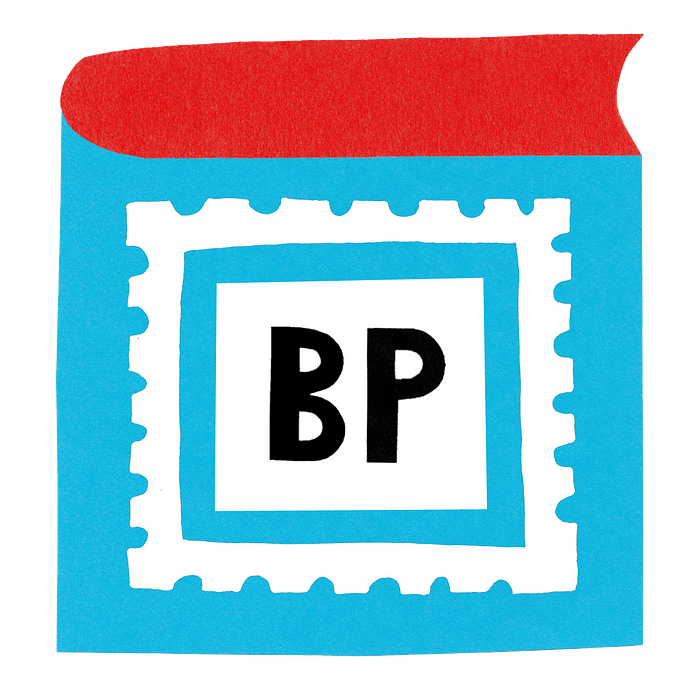
Book Post aims to restore to readers a belief they are necessary participants in the culture, their culture. Finding creative ways to build this readership is part of our work — but our first job is to bring you a great book review, one book post at time.
For the next three weeks, we’ll be sharing one story a week from our archive on Medium, bringing you pieces that are fun, thrilling, and informative. Here’s the first—our Origin Story, from editor Ann Kjellberg:
In the late 1940s, over two million Americans went to college on the GI bill. One of them was my father, who had grown up in a small yellow house on Claremont Avenue in Chicago, the only child of Swedish immigrants without higher education, and served in Europe as an underage volunteer; his father was a pipefitter. My father went to the University of Chicago, which at that time had adopted the great books curriculum of Robert Maynard Hutchins, as a local kid. Elsewhere on campus during those years was my future boss, Bob Silvers, with my other future boss, Susan Sontag; they had journeyed to Chicago from their respective suburbs because, at the age of fifteen, they could not wait to be educated and they were drawn to Hutchins’ project. My father went on to become a doctor and develop a treatment for tumors of the pituitary using protons from a nearby cyclotron he and a friend studied after the professors went home at night. Bob co-founded the New York Review of Books. Bob later told interviewers that the experience of following this landmark humanist curriculum amidst all those returning GIs decisively shaped his future. The New York Review was founded on the premise — pervasive, it seems to me as I look back, in the culture of that moment — that all of civilization was the natural inheritance of the thinking and reading American. (Another Review founder, Jason Epstein, created the so-called quality paperback in a similar spirit.) The civil rights movements that followed took nourishment from this premise.
I’ve thought a lot about the two of them at this divided juncture in our civic life. Their own political sympathies were unaligned, but they were able to communicate. They came of age amidst an expansive vision of American culture born of mass participation in the war and the social and educational openings, however incomplete, that followed. With the intense mutual suspicion that has seized our country, it seems to me urgent that we recover this spirit — that we try to reach toward a common language and shared understandings on which to build a polity. We have to learn how to inhabit our society together and not hoard our culture and our forms of expression in partisan troves.
This is the spirit of Book Post — a medium for ideas designed to spread around the pleasures and benefits of the reading life. A lesson I drew from my own years at the Review (nearly thirty of them) was that books, whatever their form, are vessels for our most developed ideas — the news of books is the news of thinking. But because of many forces in the economics of writing (the decline of advertising, the predominance of algorithm-driven social media), we no longer have the close-to-home news about books that used to arrive with the daily paper. We’re also less likely, in the age of electronic retail, to learn about them from our local bookshop. Books and the ideas in them have fewer ways of coming before readers. Likewise writing is no longer supported by the economics of reading life. This is why we at Book Post have adopted the subscriber-based newsletter, powered by the innovative platform Substack. You, the reader, are (or will be) paying for the work — not the advertiser who is collecting your data — and it comes straight to you. We charge you so we can pay the writer. Paying writers enables Book Post to bring pieces that are scintillating and well made — and also undergirded by knowledge and study. Many observers of our digital life (see, for example, Jaron Lanier) advocate paying for what you read as an antidote to the manipulations of our electronic media. Book Post aims to build trust among and deliver ideas to the widest possible readership, many of whom do not now feel served or informed in today’s media environment.
Book Post also supports independent bookselling, by linking to partner bookstores around the country. Our inaugural partnership is with The Ivy Bookshop in Baltimore.
Book Post is a by-subscription book review service, bringing to your in box book reviews by distinguished and engaging writers, plus a few other treats, such as this one, for followers of our free updates and visitors to our site. Please consider a subscription!
Book Post is a medium for ideas designed to spread the pleasures and benefits of the reading life across a fractured media landscape. Our paid subscription model allows us to pay the writers who write for you. Our goal is to help grow a healthy, sustainable, common environment for writers and readers and to support independent bookselling by linking directly to bookshops across the land and sharing in the reading life of their communities.
Sign up here for updates, or follow us on Facebook, Twitter, Instagram
